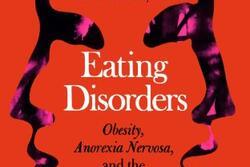Women’s Rights are Human Rights
If I were to open up my eighth grade yearbook to the very last page, I’d see a simple message scrawled in dark purple ink, with no name attached. It reads: “Never let anyone dull your sparkle.” Now, I don’t know if these words were scrawled across the pages of anyone else’s yearbook, or if they were written specifically for me. Nevertheless, this message made me feel special and important, like I could conquer any obstacles that I’d face over the next few years of my life in high school. To me, they signify strength in the face of uncertainty and fear, and they are, I believe, words that every girl and every woman should hear.
If anyone has an indelible sparkle, it’s women’s rights activist and French politician Simone Veil. Although she’s not a household name in the United States, she’s regarded with unwavering praise and awe in France, her home country. Veil has a legacy of “firsts” following her. She was France’s first female health minister, and the first female president of the European parliament. But much more important than her titles, is the significant impact that her work had on women.
Veil is most notably lauded for her part in advancing women’s legal and reproductive rights in France. She endured a wave of abuse after she addressed a national assembly (almost entirely composed of men) to fight for the legalization of abortion. Her proposal was, at the time, met with anti-Semitic attacks directed at her and her family. These attacks included swastikas drawn on her car, and a plethora of hateful letters. Many French people, from members of parliament to ordinary citizens, likened her proposed law to the brutality of the Holocaust, something Veil was all too familiar with. As a teenager, she and the rest of her family were sent to Auschwitz-Birkenau, and experienced the horrors of the Holocaust first-hand. Only she and her sisters survived. And yet, in the face of hatred and adversity, Veil endured, and successfully passed the Loi Veil, legalizing abortion in France in 1975. Her courage to fight for women’s rights amidst torrents of hateful protests serves as a symbol of strength for women everywhere.
I wanted to share Veil’s story in light of a dark shadow that has fallen over our country. The race to the White House has ended, and while our pre-election nerves have faded, new nerves have replaced them. I know that many of us, myself included, are worried for what the future may hold. To put it bluntly, this new administration is a threat to the rights of minorities across the nation, as well as to all women, but especially to those in their reproductive years. Veil’s fight to legalize abortion in France was met with an onslaught of opposition by those who did not understand the importance of this procedure to women across the country. Like in France, the battle for such a significant reproductive right has also been met with countless difficulties here in the United States. For all the hard work that led to the passing Roe v. Wade, it is terrifying that 43 years later, women might face losing this right. We are currently living in, arguably, the most socially progressive time in American history. So it blows my mind to see that Roe v. Wade may be overturned by an administration that believes the government should control what goes on inside a woman’s body. Veil’s story, as well as our own fight to legalize abortion, should remind us that the right to choose is a vital need for all women. We must do what we can to protect this right.
Back in eighth grade, I knew I wanted to have a positive influence on the world–I just didn’t know how to go about doing it. Add that to my long list of insecurities and you’d have someone who was utterly confused about who she was, who didn’t know of the strength that her words and determination could have. It’s really hard to make an impact when you perceive yourself as facing so many obstacles, which is why Simone Veil’s story resonates so deeply with me. Although I, a young woman, was dealing with the stress of transitioning to high school and a desire to fit into the mold of a socially accepted teenager, Simone was dealing with obstacles so much bigger. Her desires were met with hate, and protests that spanned across a whole nation, not just the halls of a small, albeit intimidating, high school. Yet she persevered, which to an eighth (and even now, eleventh) grader, exceeds the bounds of admiration. Although I might not be well-recognized like she is, Veil’s story has taught me that my voice matters; that the voices of girls and women everywhere matter, especially when dealing with issues that directly affect us. Who knows if I will have to ever face the decision of whether or not to get an abortion, but either way I want to be able to have access to resources if the situation does arise. So, I’m taking cues from Veil and asserting my right to the law that the U.S. government already has in place. This is my, and every woman’s, law, regardless of whether or not we support it. Protecting it is part of how I’ll make my impact on the world.
So, as we face a new presidential transition and worry about infringement of rights, we must reassess our values. Rather than letting hate and discrimination win, we must let it fuel our fire. Let’s use this election to show that our progress cannot be halted or reversed. Now more than ever, we have the responsibility to protect the rights of all people, regardless of gender, sexual orientation, religion, race, or background. Engaging with Veil’s story gives me hope that women will have the determination to be just as instrumental in shaping the future of our country for the better. We won’t let anyone dull our sparkle.
This piece was written as part of JWA’s Rising Voices Fellowship.







